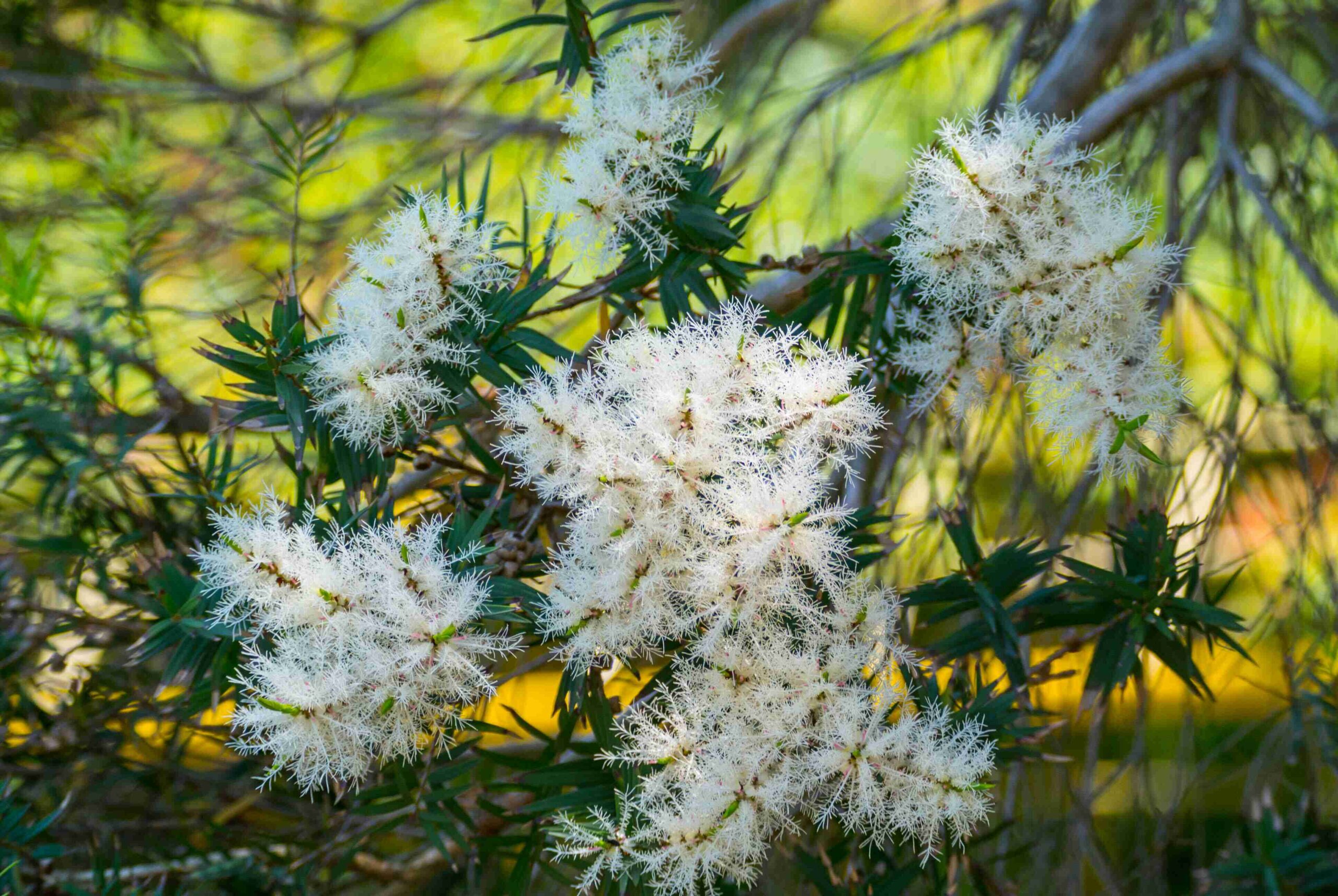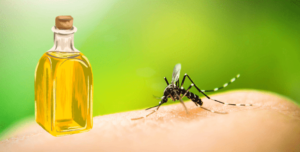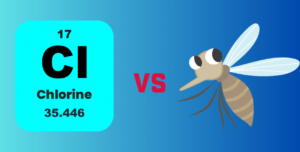Is Tea Tree Oil Good For Mosquito Bites?
Ah, the long-awaited Summer is finally here, but so are the mosquitoes… Along with the arrival of these pesky insects come their unwelcome & itchy bites. Fortunately, Mother Nature has provided a potent antidote — tea tree oil!
In this blog post, we’ll delve into the world of tea tree oil, unravel its remarkable properties, and reveal why Tea tree oil is good for mosquito bites.
What is Tea Tree Oil?
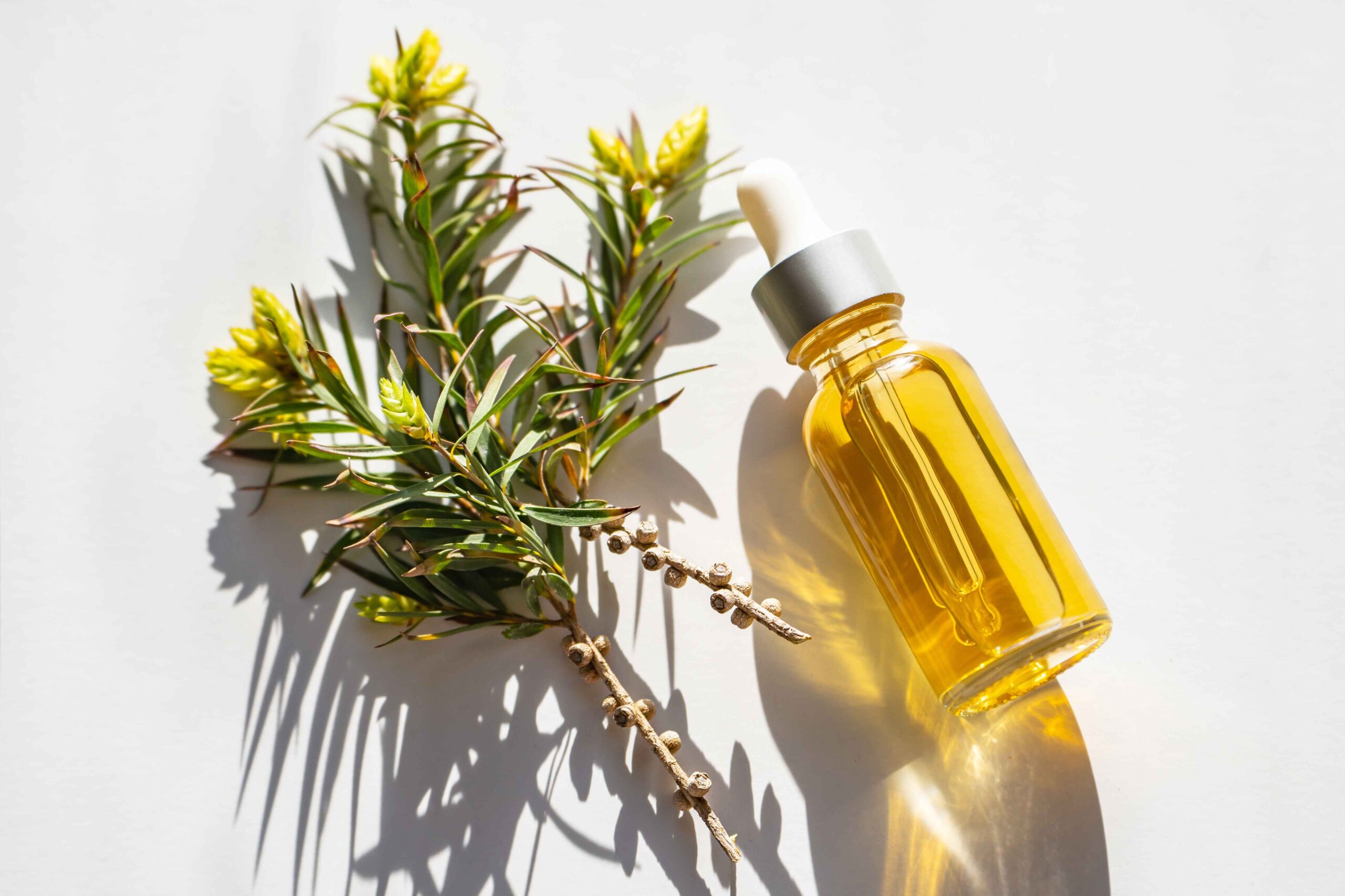
Tea tree oil, also referred to as Melaleuca oil, is extracted from the leaves of the Tea tree (Melaleuca alternifolia) — a plant native to Australia.
Don’t confuse it with the plant that gives us our beloved hot beverage; the ‘Tea tree’ derives its name from Captain James Cook’s description of the plant used by indigenous Australians to make tea.
Beneficial Properties of Tea Tree Oil
Tea tree oil’s power lies in its natural compounds. These include terpinen-4-ol, a primary ingredient known for its potent antimicrobial and anti-inflammatory properties. Tea tree oil’s antiviral and antifungal abilities are well documented, making it a multi-purpose natural remedy.
Harvesting Tea Tree Oil
This remarkable oil doesn’t just drip from the leaves of the Tea tree; it requires a meticulous extraction process. The leaves are hand-harvested from the tree and then distilled through steam to collect the oil.
The final product is a pure, concentrated form of Tea tree oil, with a distinct scent that is fresh, medicinal, and earthy.
Is Tea Tree Oil Good for Mosquito Bites? And if so, Why?
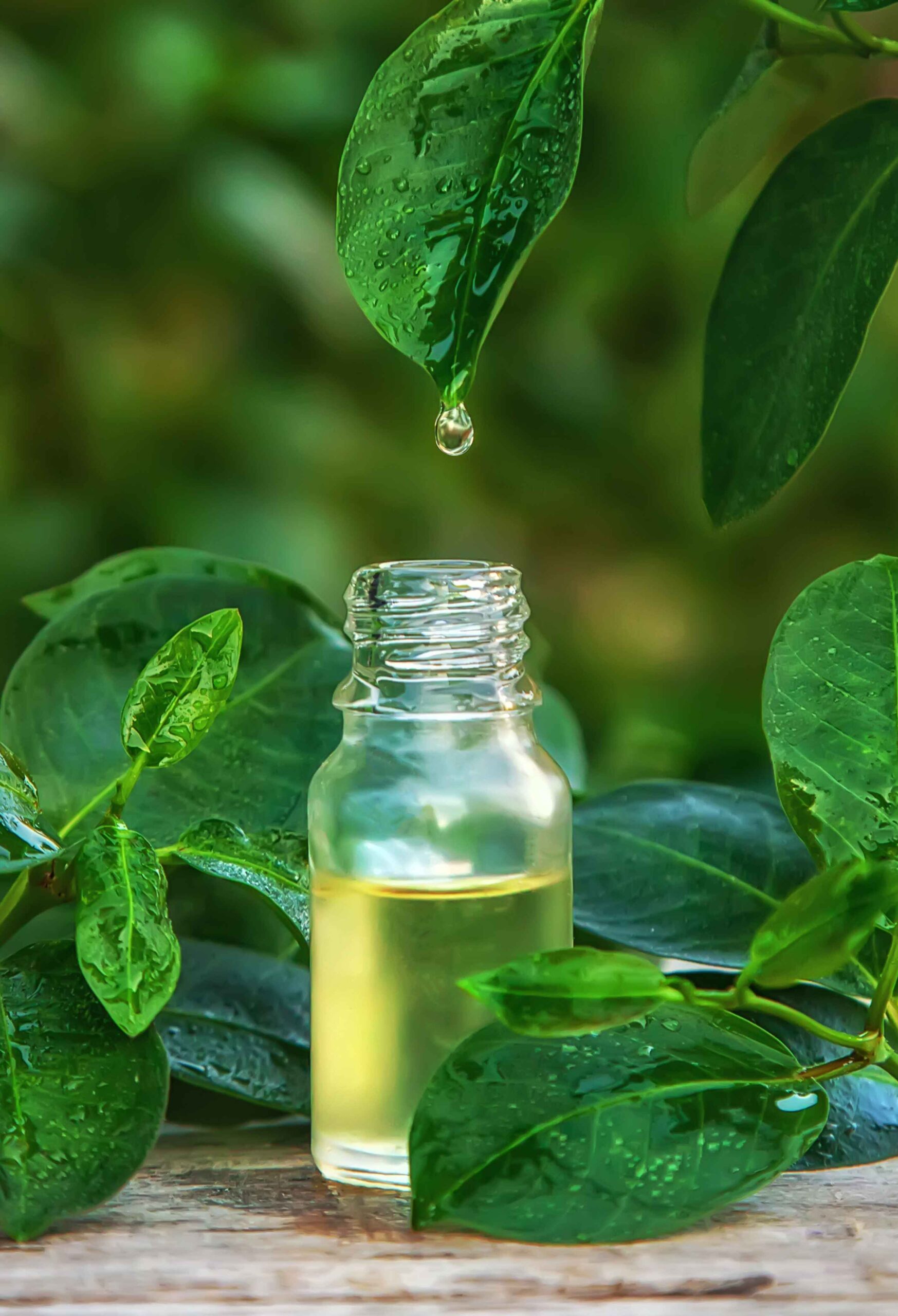
Absolutely! Tea tree oil works wonders on mosquito bites due to its exceptional anti-inflammatory properties.
When a mosquito bites, it injects saliva into your skin, causing your immune system to react. This reaction results in the familiar itching and swelling.
Applying tea tree oil can mitigate these symptoms. Its anti-inflammatory properties can reduce swelling and soothe the itch, while its antiseptic traits help to prevent secondary infections caused by scratching.
How to Use Tea Tree Oil for Mosquito Bites
Tea tree oil is potent, and undiluted tea tree oil can sometimes irritate the skin. For this reason, dilute it in a carrier oil like coconut or almond oil before application. Typically, the recommended ratio is one part tea tree oil to ten parts carrier oil.
After diluting, apply the oil mixture directly to the mosquito bite. You can use a cotton ball or a clean finger to gently rub the oil into the skin. Repeat this process as necessary for relief.
Tea Tree Oil for Other Bug Bites
Not only is tea tree oil good for mosquito bites, but it also benefits other bug bites.
Whether you’re dealing with bites from fleas, ticks, or spiders, tea tree oil can provide relief. The same anti-inflammatory and antiseptic properties that work on mosquito bites will help soothe and heal these other bites as well.
Will Tea Tree Oil Work as a Mosquito Repellant?
While Tea Tree oil may not be as effective as traditional bug spray, tea tree oil does emit a strong scent that will discourage mosquitoes from biting.
Since mosquitoes are typically seeking out sources of standing water and the scent of sweat/blood, any odors that overwhelm the scent of their intended food source will work as a mosquito repellant.
So if you have a bottle of tea tree oil and you want a more natural mosquito repellant, this oil is a great option.
[vcex_divider color=”#dddddd” width=”100%” height=”1px” margin_top=”20″ margin_bottom=”20″]
You can also plant Tea trees in your yard, which act as a natural mosquito repellant due to its mild scent. We have a great article on plants that repel mosquitoes in Florida.
[vcex_divider color=”#dddddd” width=”100%” height=”1px” margin_top=”20″ margin_bottom=”20″]
Final Thoughts
In conclusion, tea tree oil is a robust, natural remedy for mosquito bites and other bug bites alike. Its unique healing properties can help soothe itching, reduce swelling, and ward off potential infections.
As we explore more of its numerous applications, it becomes clear why this versatile oil is a must-have in our natural first-aid kits.
However, remember that while tea tree oil is good for mosquito bites, it doesn’t prevent them. For prevention, consider insect repellents, protective clothing, and eliminating mosquito breeding grounds around your home. Enjoy a bite-free summer!
Tea tree oil, with its long history of medicinal use by indigenous Australians and its growing popularity worldwide, stands as a testament to the healing power of nature. So, the next time a mosquito decides to make a meal of you, reach for the tea tree oil. Your skin will thank you!
Disclaimer: This blog post provides general advice only. It is always recommended to perform a patch test when trying a new essential oil and consult with a healthcare professional if you have any specific medical conditions or concerns.
